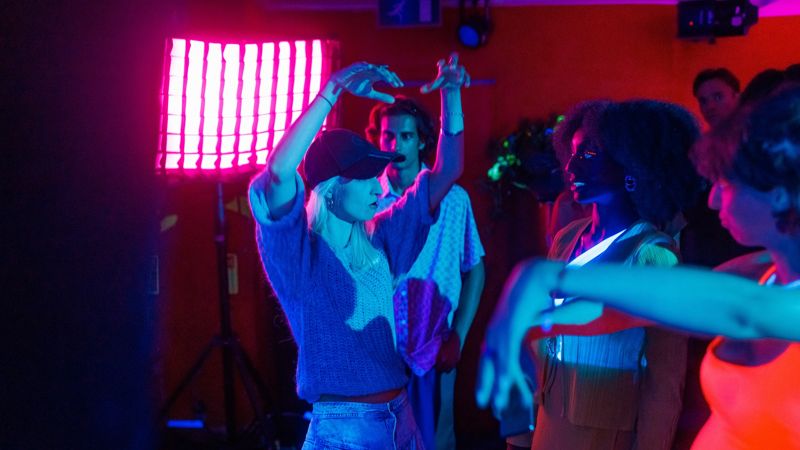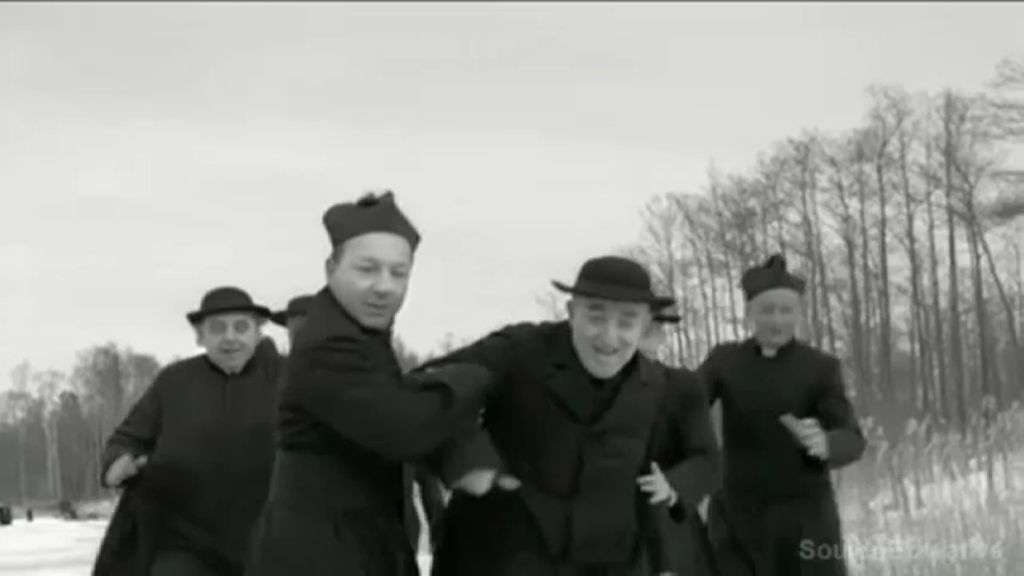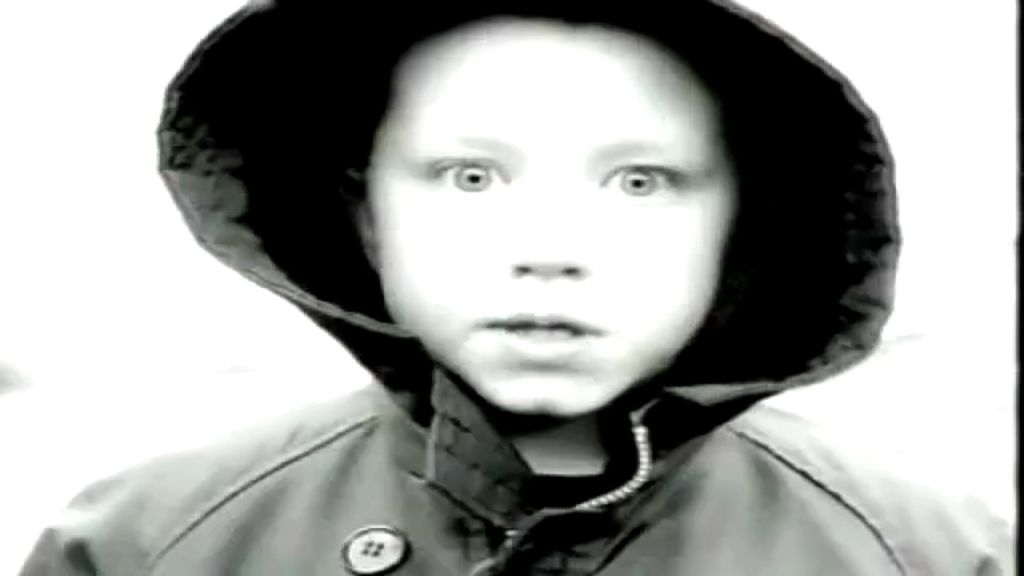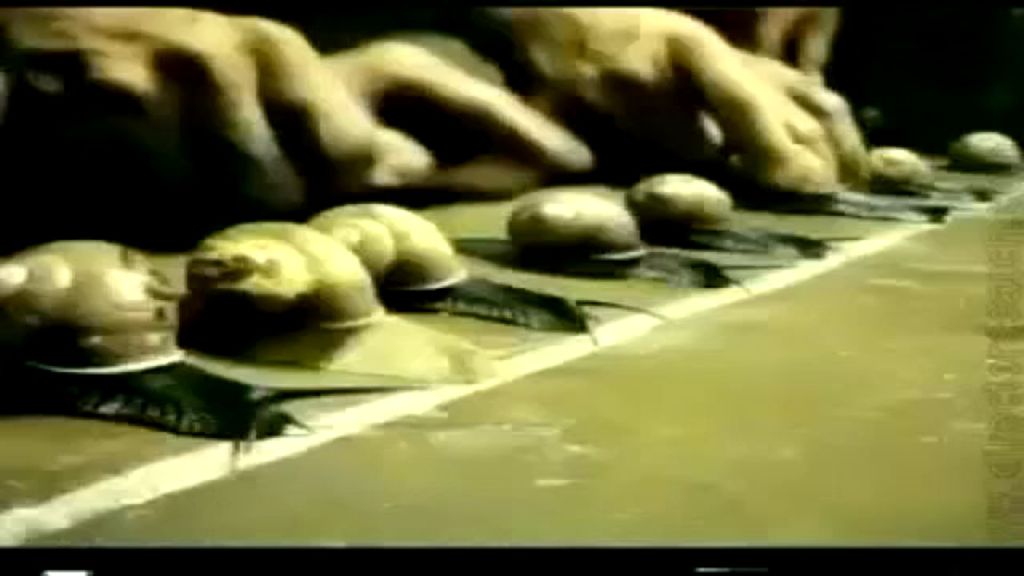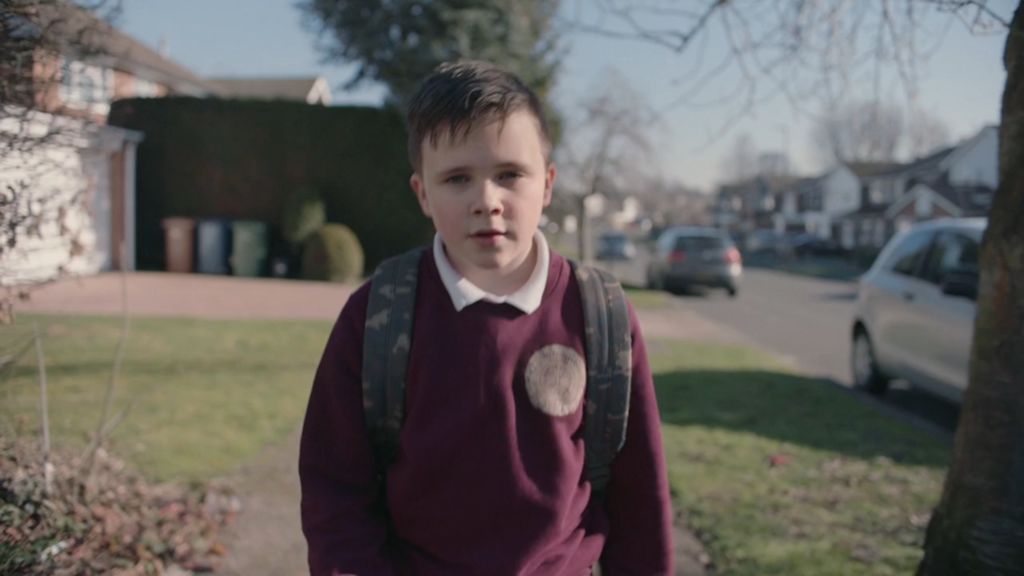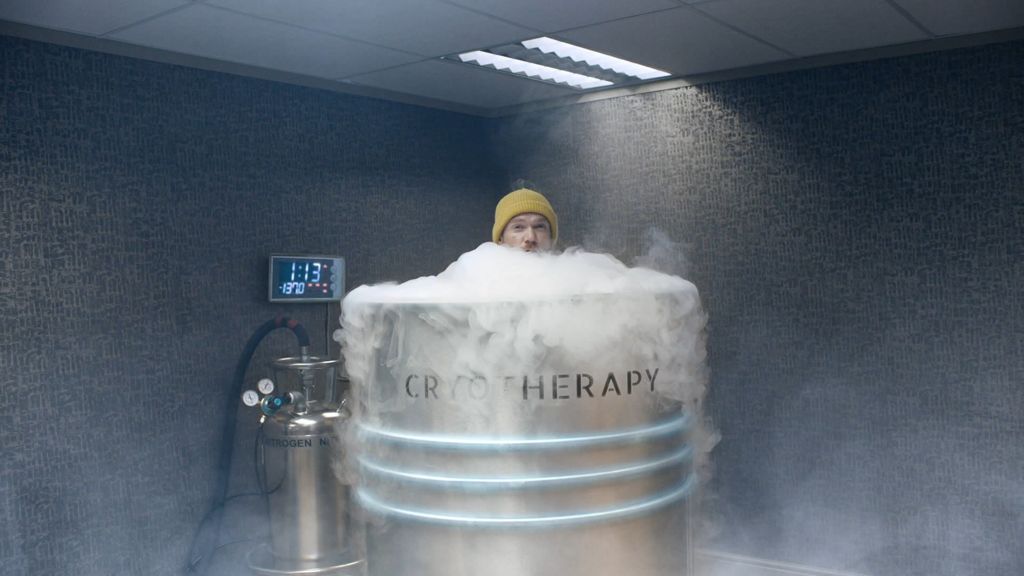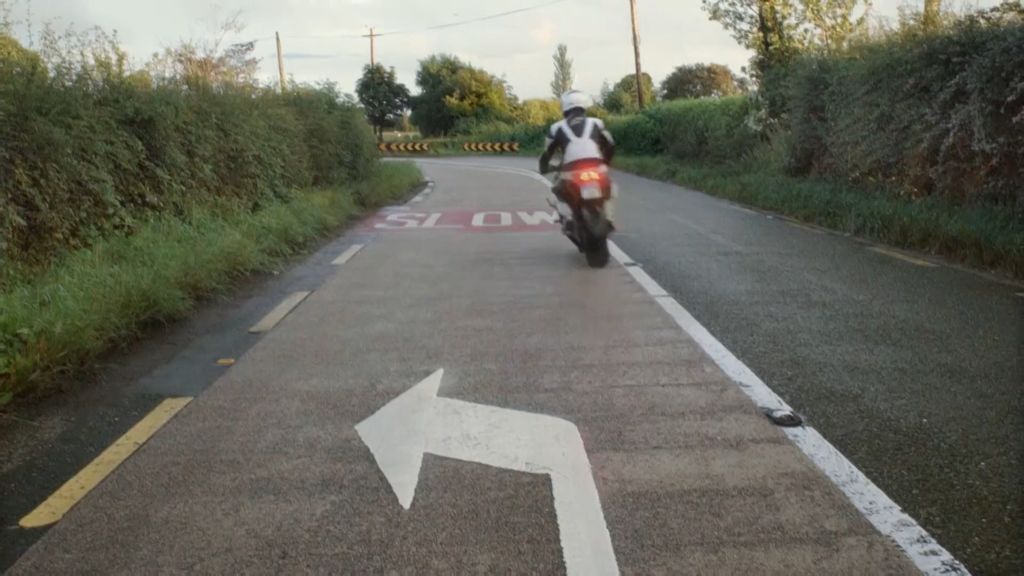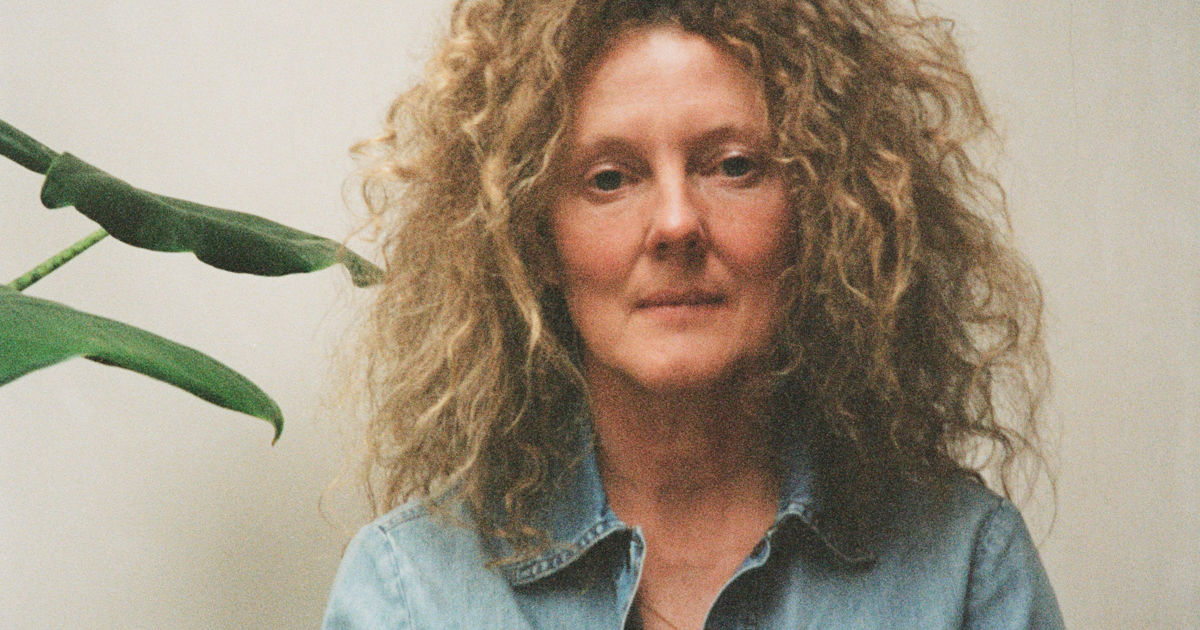The Way I See It: Siri Bunford
From the 60-second Steadicam shot on the set of The Shining which started it all, to a Super Bowl spot for Google, Knucklehead director Siri Bunford has helmed some of the most iconic ads of the past 15 years and blazed a trail for female directors in the commercials world. Whether it’s #FoodDancing or pigeon fancying, the secret to Bunford’s success is simple: finding the humanity at the heart of every story – and a ‘just keep going’ mentality.
I was born in Cardiff, though I’ve lived in London for more than 25 years.
Both my mum and dad were opera singers who met at the Welsh National Opera. In his younger days, my father had been a coal miner, until they discovered he had a very good soprano voice. Because of the effect that the dust would have on his voice, he was extracted from the mines - but because it was during the war, it all had to be done very quietly.
My dad went on to sing professionally and then became a music professor at the University of Cardiff so it was only natural that he wanted to instill music into me and my brother. I had to play the cello, and my brother played the French horn. That’s when I realised that ramming something down somebody’s throat is a good way of getting them to not enjoy that thing.
After going to a Welsh school in Cardiff, where all my education was in Welsh, I went on, rather rebelliously, to do English literature at university.
My brother went on to learn the guitar and formed a band called The Super Furry Animals, who had quite a meteoric rise to fame in the 90s. He carried on the musical tradition and made my father really proud. Meanwhile I got to Grade 6 on the cello and then gave it up.
I didn't really have a career choice. I remember wanting to be an actress when I was younger - but then, who doesn't? After going to a Welsh school in Cardiff, where all my education was in Welsh, I went on, rather rebelliously, to do English literature at university, and then flew blind from job to job. I didn’t really have any ambition to work in the advertising industry, or as a director; I just fell into it.
Credits
powered by
- Agency Wunderman Thompson/London
- Production Company Knucklehead
- Director Siri Bunford
-
-
Unlock full credits and more with a Source + shots membership.
Credits
powered by
- Agency Wunderman Thompson/London
- Production Company Knucklehead
- Director Siri Bunford
- Editor Adam Rudd
- Sound Designer Munzie Thind
- Executive Creative Director Tom Drew
- Creative Director Mike Watson
- Creative Craig Hunt
- Creative James Humphreys
- Producer Sonny Botero
- Producer Matthew Brown
- Production Manager Cat Irving
- DP Christopher Sabogal
- Production Designer Tom Wales
- Colorist Matthieu Toullet
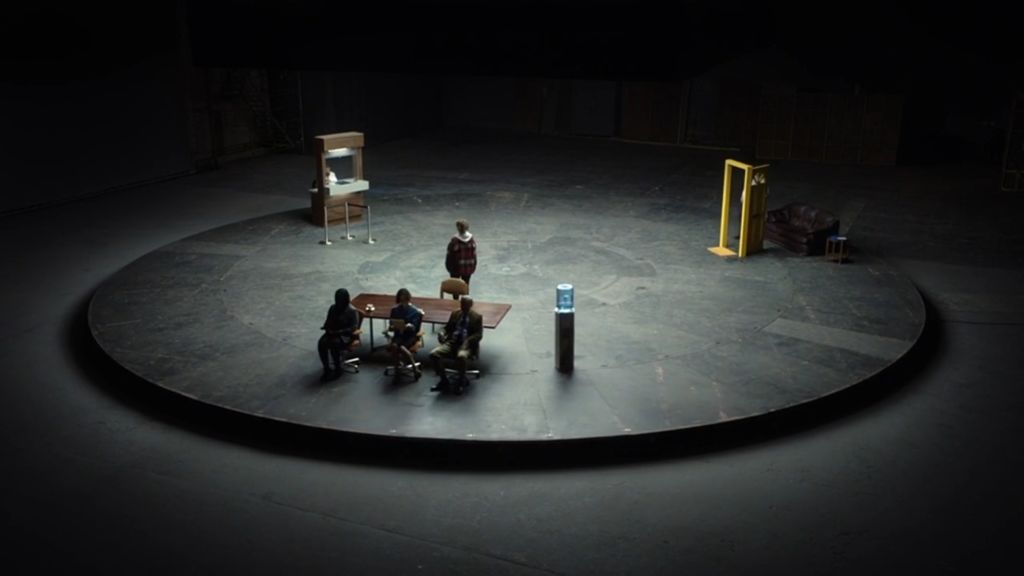
Credits
powered by
- Agency Wunderman Thompson/London
- Production Company Knucklehead
- Director Siri Bunford
- Editor Adam Rudd
- Sound Designer Munzie Thind
- Executive Creative Director Tom Drew
- Creative Director Mike Watson
- Creative Craig Hunt
- Creative James Humphreys
- Producer Sonny Botero
- Producer Matthew Brown
- Production Manager Cat Irving
- DP Christopher Sabogal
- Production Designer Tom Wales
- Colorist Matthieu Toullet
Above: Vicious Circle for HSBC, recent work of Bunford's.
I didn’t go to film school. Instead, I worked for a publishing house. I sold Christmas trees. I worked in the features department of Elle magazine for a bit. Then I was hired as a promo maker at Turner Classic Movies, and that was the first time I thought: oh, I’ve got a proper job now.
I started at the same time as [Rogue director] Simon Ratigan. All day, we’d watch this library of incredible movies and then we’d make promos. None of us had really been trained, so we went on Avid courses to learn to cut and that was the beginning of it all. Learning how to make something from scratch in a short time frame – writing the copy, shooting, editing - was a brilliant grounding for advertising. It really helped you understand the process.
I was very happy making promos - until one day, I wasn't.
Around 2000/2001, Channel 4 launched a great big new creative department, and I found my way into there. I was doing lots of shoots, all on film to begin with. There was enormous freedom to do whatever you wanted to do and let your imagination run with you. I don’t think I ever got an idea knocked back by commissioning or the legal team; everybody was just like: yeah, that's great, go off and make it.
I did that for about 10 years and became creative director of More4. I wasn't particularly ambitious; I wasn't set on making commercials. I was very happy making promos - until one day, I wasn't.
Credits
powered by
-
- Production Company Knucklehead
- Director Siri Bunford
-
-
Unlock full credits and more with a Source + shots membership.
Credits
powered by
- Production Company Knucklehead
- Director Siri Bunford
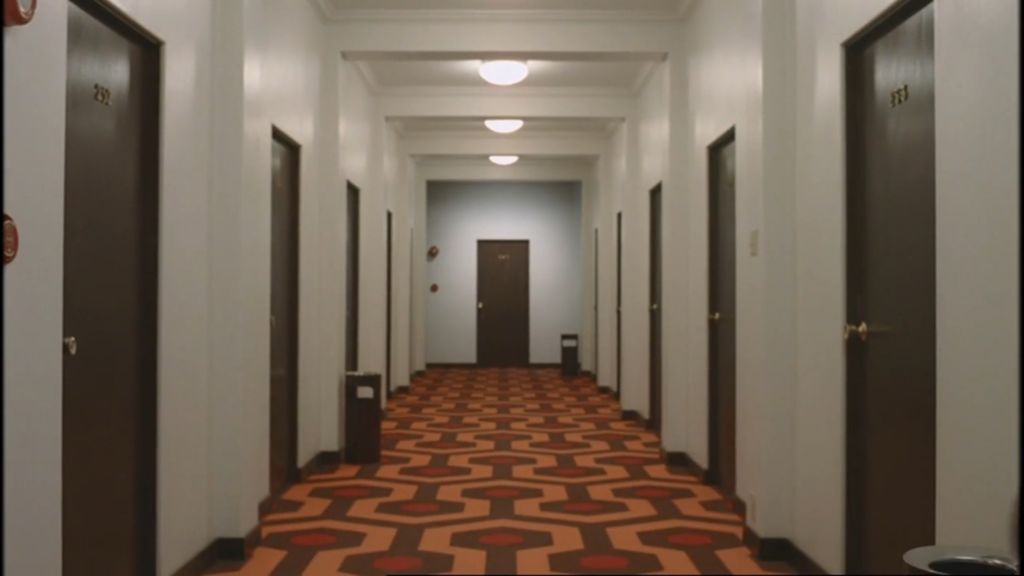
Credits
powered by
- Production Company Knucklehead
- Director Siri Bunford
Above: Bunford's Kubrick film for Channel 4; "the spot that changed everything".
The Kubrick spot [for More4’s Stanley Kubrick season] changed everything – although at the time I never thought it would have such an impact: it was just another Channel 4 promo. Kubrick had such an incredibly diverse output that I wondered how I could do justice to him. Then I landed on the idea of a Steadicam shot following him walking onto set one morning, and all the characters from The Shining being there.
The camera is the story: it takes you through each scene. I’d never used a Steadicam before, and because we had to time it to last 60 seconds, Kave Quinn, the art director, built the set in a horseshoe shape. There were obvious scenes, like the ballroom and the snowy maze, but also more subtle references, like the weird bear sitting outside the door.
Kubrick had such an incredibly diverse output that I wondered how I could do justice to him.
I got a bit obsessed with the casting. Kubrick’s daughter had made a documentary about the making of The Shining and I would freeze-frame scenes and say to my casting director, I want you to find someone who look exactly like the first AD, or the script lady. So all the characters [in the Channel 4 spot] are physical replicas of the real crew.
The clothes and the carpet were also specially made - and then we found the axe, that belonged to Kubrick’s estate. Even the lenses we used were ones he’d owned. It was a slightly weird, fetishistic way of making something – but to me, everything was a reference point.
We shot it in two days and 21 takes. I worked out all the choreography in the morning, and then we started shooting in the afternoon. On take 15, everyone and the camera moved in the right way. It was an absolute joy.
Credits
powered by
- Agency Wieden + Kennedy/London
- Production Company Knucklehead
- Director Siri Bunford
-
-
Unlock full credits and more with a Source + shots membership.
Credits
powered by
- Agency Wieden + Kennedy/London
- Production Company Knucklehead
- Director Siri Bunford
- Head of Planning Beth Bentley
- Account Manager Sophie Lake
- Account Director Matt Owen
- Account Director Paulo Salomao
- Exec Producer Danielle Stewart
- Exec CD Iain Tait
- Exec CD Tony Davidson
- Art Director Mark Shanley
- Copywriter Paddy Treacy
- CD Graeme Douglas
- CD Scott Dungate
- Producer Michelle Brough
- Planning Director Martin Beverley
- Sound Design Phil Bolland
- Sound Design Anthony Moore
- Colorist Matthieu Toullet
- VFX Bill McNamara
- Producer Anandi Peiris
- Editor Adam Marshall
- Editor Xavier Perkins
- DP Ben Smithard
- Exec Producer Matthew Brown
- Award Body APA Advertising Producers Association
- Talent Theo Jansen
- Talent Iris Apfel
- Talent Hafthor Julius Bjornsson
- Song "Undeniable" Richie Sosa
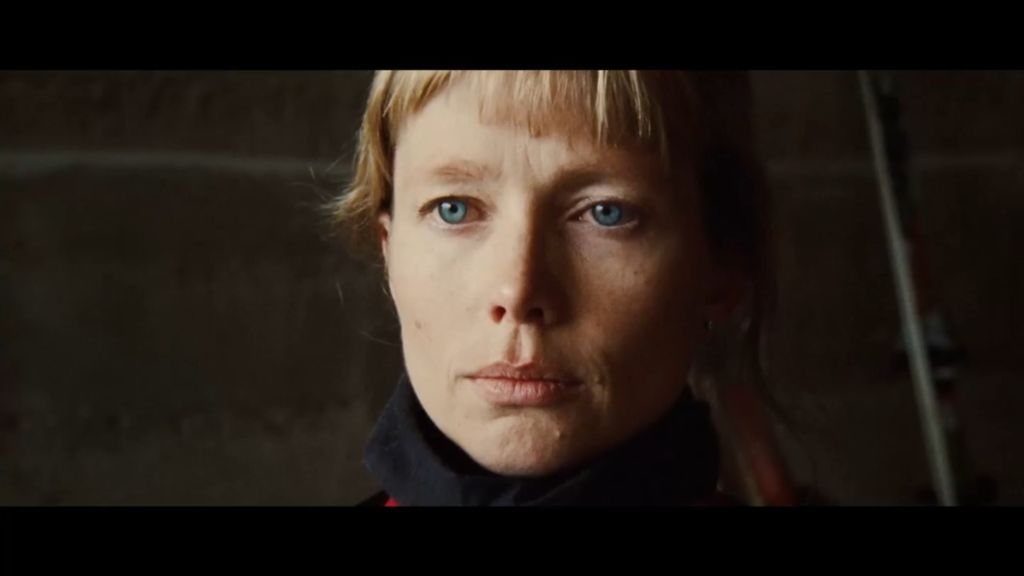
Credits
powered by
- Agency Wieden + Kennedy/London
- Production Company Knucklehead
- Director Siri Bunford
- Head of Planning Beth Bentley
- Account Manager Sophie Lake
- Account Director Matt Owen
- Account Director Paulo Salomao
- Exec Producer Danielle Stewart
- Exec CD Iain Tait
- Exec CD Tony Davidson
- Art Director Mark Shanley
- Copywriter Paddy Treacy
- CD Graeme Douglas
- CD Scott Dungate
- Producer Michelle Brough
- Planning Director Martin Beverley
- Sound Design Phil Bolland
- Sound Design Anthony Moore
- Colorist Matthieu Toullet
- VFX Bill McNamara
- Producer Anandi Peiris
- Editor Adam Marshall
- Editor Xavier Perkins
- DP Ben Smithard
- Exec Producer Matthew Brown
- Award Body APA Advertising Producers Association
- Talent Theo Jansen
- Talent Iris Apfel
- Talent Hafthor Julius Bjornsson
- Song "Undeniable" Richie Sosa
Above: Finlandia 1000 Years; Bunford's "best work".#FoodDancing film for Sainsburys
Funnily enough, before that job, I’d approached Knucklehead and told them I really wanted to join the company, but they wouldn’t hear of it. Then I did the Kubrick spot, and they called me back.
I’ve been very, very happy at Knucklehead: happy to focus on the work and not where the work was taking me. The variety of scripts is really interesting: I've been really lucky in that some directors go down that route of ‘I’m just doing cars’ or ‘I’m just doing food’ - and I was more open to general storytelling.
There’s a quote from Charles Bukowski about people who ‘run from the rain but sit in bathtubs full of water’ and those are the people that I have been drawn to.
The best work I’ve ever done was Finlandia 1000 Years, which was all about portraying the amazingly extraordinary people out there, with all their imperfections – like the bear man, who hibernates with bears in these giant beehives; or Iris Apfel, who used to do up houses for the Kennedys and prides herself on being the oldest teenager in the world. I suppose I’ve always been interested in the anomalies and the outliers; people who are a mass of contradictions. There’s a quote from Charles Bukowski about people who ‘run from the rain but sit in bathtubs full of water’ and those are the people that I have been drawn to.
I’ve always enjoyed trying out different ways of telling my stories, film or digital or with stills or a mash-up of everything. Finlandia was basically a series of sequential scenes with different characters – and the challenge was making each one feel different. The solution was to shoot some on film, some on Bolex 16mm, some on the Alexa, and some on the iPhone.
Credits
powered by
- Agency Wieden + Kennedy/London
- Production Company Knucklehead
- Director Siri Bunford
-
-
Unlock full credits and more with a Source + shots membership.
Credits
powered by
- Agency Wieden + Kennedy/London
- Production Company Knucklehead
- Director Siri Bunford
- Creative Director Scott Dungate
- Creative Director Sophie Bodoh
- Creative Philippa Beaumont
- Creative Freddy Taylor
- Design Director Karen Jane
- Executive Creative Director Tony Davidson
- Executive Creative Director Iain Tait
- Executive Producer Danielle Stewart
- Producer Michelle Brough
- Production Assistant Sahar Bluck
- Editing Final Cut/London
- VFX Time Based Arts
- Music Wake The Town
- Sound Design 750mph
- Exec Producer Matthew Brown
- DP Jim Jolliffe
- Editor Adam Rudd
- VFX Supervisor Tom Johnson
- Flame Artist Mike Aveling
- VFX Producer Lauren Havard
- Colourist Simone Grattarola
- Music Supervisor John Connon
- Sound Designer Sam Ashwell
- Animator Jess Gorick
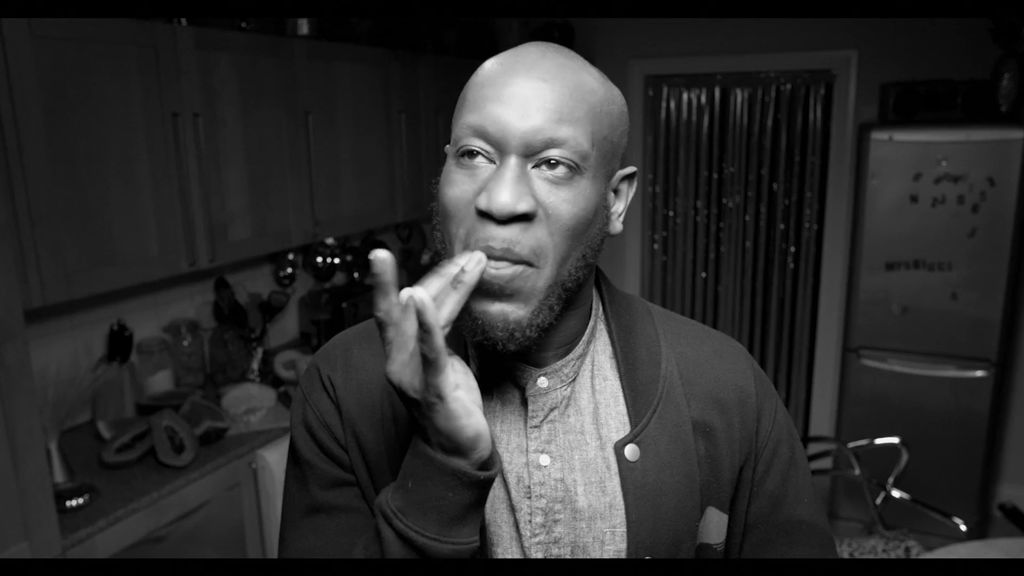
Credits
powered by
- Agency Wieden + Kennedy/London
- Production Company Knucklehead
- Director Siri Bunford
- Creative Director Scott Dungate
- Creative Director Sophie Bodoh
- Creative Philippa Beaumont
- Creative Freddy Taylor
- Design Director Karen Jane
- Executive Creative Director Tony Davidson
- Executive Creative Director Iain Tait
- Executive Producer Danielle Stewart
- Producer Michelle Brough
- Production Assistant Sahar Bluck
- Editing Final Cut/London
- VFX Time Based Arts
- Music Wake The Town
- Sound Design 750mph
- Exec Producer Matthew Brown
- DP Jim Jolliffe
- Editor Adam Rudd
- VFX Supervisor Tom Johnson
- Flame Artist Mike Aveling
- VFX Producer Lauren Havard
- Colourist Simone Grattarola
- Music Supervisor John Connon
- Sound Designer Sam Ashwell
- Animator Jess Gorick
Above: Bunford's #FoodDancing film for Sainsburys
Some of my work, like #FoodDancing for Sainsburys, might look different to British Airways, but in another sense it wasn’t different at all: it was all about running round the country and capturing real people in their environments.
I’ve made ads for Nike, Google, Dove, McDonalds, Amazon, British Airways and adidas, but one brand I’ve always wanted to work with is Apple. I love how they can do storytelling but also really beautiful product-led stuff as well.
I love how [Apple] can do storytelling but also really beautiful product-led stuff as well.
One of the best ads I’ve ever seen was Jonathan Glazer’s Ice Skating Priests for Stella Artois, a film about a priest who simply can't suppress his desire to drink. That’s what advertising used to be all about: deviancy and desire, and how you quench that desire. Now everything is more real and relatable; more reflective of popular culture. It's about trying to be cool and conforming. Which is, ironically, the opposite of being cool.
Films like Ice Skating Priests, Sony Playstation Double Life and Guinness Snail Racing were one of the reasons I was excited about getting into advertising. They’re all ads that tell fictional stories. The product isn’t front and centre; it’s more subliminal. You wouldn’t get Ice Skating Priests now. I've had the scripts that start: we open on a bar full of friends, all enjoying a pint of refreshing Guinness - and you're like, okay, where are we going to go from there? Where’s the imagination? Where's the human agency? How do we feel the desire for that product? It’s much tougher to work that into something that fires the imagination.
Stella Artois – Ice Skating Priests
Playstation – Double Life
Guinness – Bet On Black
Above: Stella Artois Ice Skating Priests, Sony Playstation Double Life and Guinness Snail Racing; three commercials Bunford admires.
The worst day of my career was my first job after signing with Knucklehead. I was shooting in Italy, working with a first AD who was the definition of misogyny.
The best day of my career so far? Honestly, there have been too many to count.
Resilience is the most important thing I’ve learned during my time in the industry. You have to accept that you probably lose more scripts than you win – I certainly do - and you just have to keep going, put it behind you and never take it personally. Over the years, I’ve got very good at saying: OK, I didn't get that - move on, next.
Getting signed is much tougher now, because everyone’s a director.
Awards are lovely, and they certainly don’t hurt your career, but do they mean anything? Although I’m the director, the whole thing is a collaboration: cliched, but true. Everyone, from the art director to the producers, everyone is important. I guess the director’s talent is that you pick all those people and you have a vision; you’re able to tell stories in pictures. But I don’t know if that warrants an award as such.
Keep going, keep going, keep going is the best piece of advice I’ve ever been given. When you’re a director you can have a fallow period and then you can have super busy periods, and there's no rationale to any of it.
When I started [in] advertising, I was a complete anomaly because I was a female director. There weren't that many of us around; Kim Gehrig was the only other I can think of. But we're not special anymore.
Getting signed is much tougher now, because everyone’s a director. People are picking up their phones and making films and then putting them out there on Instagram. And there's only a certain amount of work to go round.
British Heart Foundation – Boy
TurboTax – How We Do Things
Road Safety Authority – Signs
I’ve gone from making 60-second films to 30, 20, even six-second, Instagram-friendly films. So you’re having to do more for the same amount of money, or less money. The cost of actually making that ad and making it good is the same as it always was. Because, as Tim [Katz, managing partner at Knucklehead] says, “you can put a Picasso in the toilet, but it's still a Picasso”. So it doesn’t matter if it’s only online, or on social media; from a directorial and production point of view, you're still going to make it really good.
I've never been single-minded about doing ads; I think that if you have an idea for something else, just go off and explore that idea. Last year, I found out about a Crufts for pigeons in Blackpool. The people that compete are passionate about it, even though you can’t tell one pigeon from another! I'd pitched it to Film Wales and they gave us some money to develop the pilot. But then avian flu happened and none of the pigeons could compete.
Now I’m toying with the idea of making something about taxidermy and in particular, people who taxidermy their pets as a way of dealing with their grief. Did you know it takes around two years to stuff a pet? I’m thinking of making it in the style of Errol Morris’ Gates of Heaven.
One of the reasons I’ve stuck with Knucklehead is because they’ve got to know how I work, and I know how they work.
To succeed as a director you need talent, imagination, patience, resilience, a lack of fear. And, of course, something to say. But I’d encourage any young person considering it as a career to go for it. It’s a wonderful way to live your life.
My heroes are Picasso and Joan Didion. I’m inspired by any genius.
They weren’t exactly mentors, but without my producers, Tim and Matthew [Brown, managing partner at Knucklehead], I really don't think I could have succeeded or kept my momentum going. One of the reasons I’ve stuck with Knucklehead is because they’ve got to know how I work, and I know how they work. For example, when we were casting British Heart Foundation Boy, we had about 100 kids come in to audition, and Matthew knew exactly who I was going to pick. It’s just such a brilliant shorthand.
Do I care what people think of me? Not in the slightest.
Welsh people have a very strong identity. If someone asks me: are you English or Welsh, I’d probably say Welsh - even though I haven’t lived there for such a long time. I really notice the difference when I come back here. People talk to each other at bus stops. They’re kinder to each other; more compassionate. It’s a slower way of life.
Credits
powered by
- Agency Wieden + Kennedy/Shanghai
- Production Company Knucklehead
- Director Siri Bunford
-
-
Unlock full credits and more with a Source + shots membership.
Credits
powered by
- Agency Wieden + Kennedy/Shanghai
- Production Company Knucklehead
- Director Siri Bunford
- Copywriter Jimmy Chen
- Copywriter Joey Chung
- Exec CD Michael Simons
- Exec CD Achilles Li
- CD Azsa West
- Copywriter Jess Price
- Art Director Shaun Sundholm
- Producer Angie Wong
- Producer Fang Yuan
- CD Terence Leong
- Prod Service Playfull
- Exec Producer Matthew Brown
- Exec Producer David Clarke / (Executive Producer)
- Producer Wolfie Wong
- Producer Peter Maynard
- Editor Xavier Perkins
- DP Ben Smithard
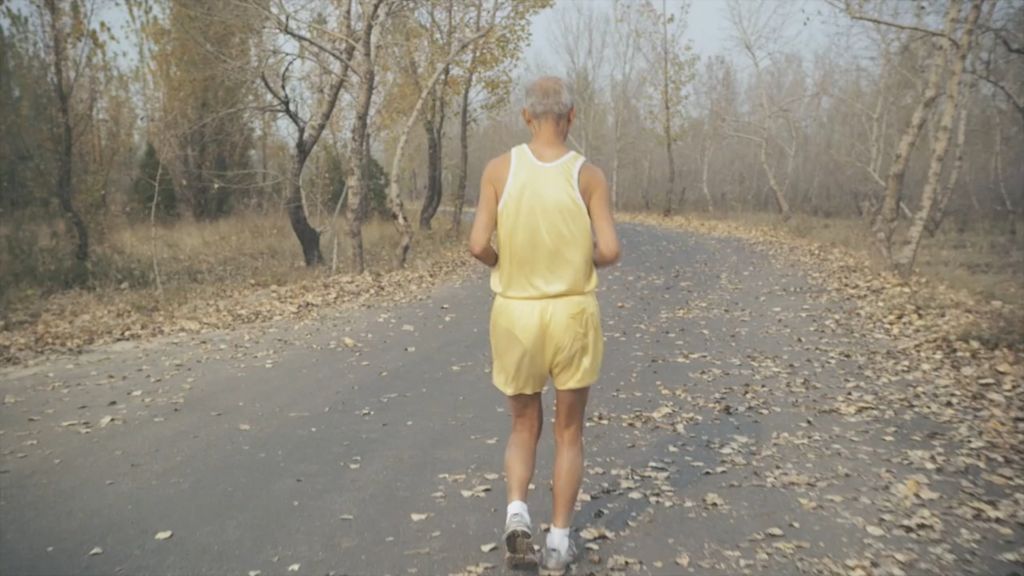
Credits
powered by
- Agency Wieden + Kennedy/Shanghai
- Production Company Knucklehead
- Director Siri Bunford
- Copywriter Jimmy Chen
- Copywriter Joey Chung
- Exec CD Michael Simons
- Exec CD Achilles Li
- CD Azsa West
- Copywriter Jess Price
- Art Director Shaun Sundholm
- Producer Angie Wong
- Producer Fang Yuan
- CD Terence Leong
- Prod Service Playfull
- Exec Producer Matthew Brown
- Exec Producer David Clarke / (Executive Producer)
- Producer Wolfie Wong
- Producer Peter Maynard
- Editor Xavier Perkins
- DP Ben Smithard
If I could time travel, I’d go back to my wedding day and relive every moment.
General anaesthetic has to be the single greatest invention. Before that, they literally had to press down on your carotid artery until you lost consciousness.
The most stupid human invention is probably a tanning bed.
Am I an introvert or an extrovert? Probably a bit of both. I can very easily go up to a complete stranger on a park bench, start chatting to them and get their whole life story out of them. I can get very interested – almost too interested - in people.
If I was picking out a human foible that makes me angry, it would be people who don't take responsibility for things.
After 15 years, I’ve become used to this way of life. When my son was two, I went to China for six weeks to film Nike’s Let The Run Tell You Why. It was really hard to leave him, but I just got on with it. I used to come back from long shoots and need a whole day to adjust back to home life. But gradually it becomes normal.
Listening to Tory politicians talking about the state of the economy is really depressing. I also have this thing about people who drive big 4x4s in the middle of London. If I was picking out a human foible that makes me angry, it would be people who don't take responsibility for things. But I’m not a particularly angry person; I get irritated more than angry.
Timekeeping and punctuality are things I want to change about myself. [Being late] is rude, and I'm really trying to work on it.
If I was Prime Minister for the day, I'd reverse Brexit. I would get rid of the sovereign grant. I would halve the defence budget, which is something like £45 billion – why do we need it? And I would do something about the right-wing press.
The closest I’ve been to death was flying over Tanzania, filming migrating wildebeest for British Airways. There were no doors on the helicopter and we were flying incredibly low. If we’d crashed or run out of fuel, we could have been eaten by lions. That was pretty scary, but I'd probably still do it again.
I'm not frightened of death at all.
I'm not frightened of death at all, because I’ve seen it up close and it really reinforces your love of life [Bunford’s husband died unexpectedly three years ago]. We’re only here for a little while, so we have to (try to) enjoy it. I found Nick Cave’s book Faith, Hope, and Carnage incredible because it taps into what it’s like to overcome something so painful and debilitating and obliterative. It really does give you hope that you can come through it.
At the end of the day, love and being loved is what really matters. If you have that, then you have a very rich life.
)

